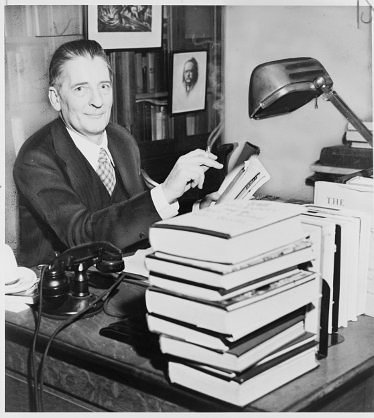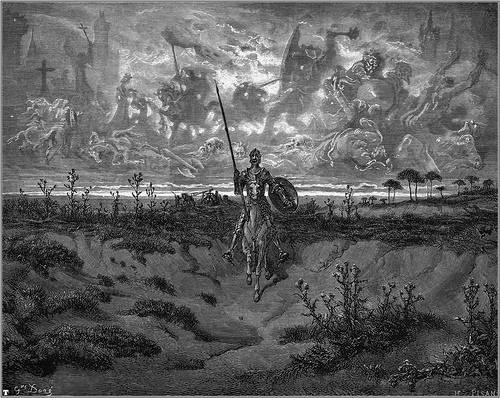In Ralph Roister Doister (1553), Ralph asks a scrivener to compose a love letter to Dame Christian Custance. But when Matthew Merrygreek reads it for her, Dame Custance is shocked to hear an insulting diatribe. This is certainly not what Ralph intended, but the scrivener confirms that he copied the letter accurately, and Merrygreek read it verbatim and in full. What’s going on here?
Sweet mistress, whereas I love you nothing at all–
Regarding your substance and richness chief of all–
For your personage, beauty, demeanour and wit,
I commend me unto you never a whit.–
Sorry to hear report of your good welfare,
For (as I hear say) such your conditions are,
That ye be worthy favour of no living man,
To be abhorred of every honest man,
To be taken for a woman inclined to vice,
Nothing at all to virtue giving her due price.–
Wherefore, concerning marriage, ye are thought
Such a fine paragon, as ne’er honest man bought.–
And now by these presents I do you advertise
That I am minded to marry you in no wise.–
For your goods and substance, I can be content
To take you as ye are. If ye mind to be my wife,
Ye shall be assured, for the time of my life,
I will keep you right well from good raiment and fare–
Ye shall not be kept but in sorrow and care–
Ye shall in no wise live at your own liberty.
Do and say what ye lust, ye shall never please me;
But when ye are merry, I will be all sad;
When ye are sorry, I will be very glad;
When ye seek your heart’s ease, I will be unkind;
At no time in me shall ye much gentleness find,
But all things contrary to your will and mind,
Shall be done–otherwise I will not be behind
To speak. And as for all them that would do you wrong,
I will so help and maintain, ye shall not live long–
Nor any foolish dolt shall cumber you but I.
I, whoe’er say nay, will stick by you till I die.
Thus, good mistress Custance, the Lord you save and keep;
From me, Roister Doister, whether I wake or sleep–
Who favoureth you no less, ye may be bold,
Than this letter purporteth, which ye have unfold.
|
SelectClick for Answer |
Merrygreek read the letter verbatim, but by pausing in the wrong places he effectively repunctuated it, giving it the opposite meaning from the one Ralph intended. Here’s the letter as it was written:
Sweet mistress, whereas I love you nothing at all
Regarding your substance and richness — chief of all
For your personage, beauty, demeanour and wit
I commend me unto you. — Never a whit
Sorry to hear report of your good welfare,
For (as I hear say) such your conditions are,
That ye be worthy favour; of no living man
To be abhorred; of every honest man
To be taken for a woman inclined to vice
Nothing at all; to virtue giving her due price.–
Wherefore concerning marriage, ye are thought
Such a fine paragon, as ne’er honest man bought.–
And now by these presents I do you advertise,
That I am minded to marry you — in no wise
For your goods and substance — I can be content
To take you as ye are. If ye mind to be my wife,
Ye shall be assured for the time of my life,
I will keep you right well; from good raiment and fare,
Ye shall not be kept; but in sorrow and care
Ye shall in no wise live; at your own liberty,
Do and say what ye lust; ye shall never please me
But when ye are merry; I will be all sad
When ye are sorry; I will be very glad
When ye seek your heart’s ease; I will be unkind
At no time; in me shall ye much gentleness find.
But all things contrary to your will and mind
Shall be done otherwise; I will not be behind
To speak. And as for all them that would do you wrong–
I will so help and maintain ye–shall not live long.
Nor any foolish dolt shall cumber you, but I,
I, whoe’er say nay, will stick by you till I die.
Thus, good mistress Custance, the Lord you save and keep.–
From me, Roister Doister, whether I wake or sleep,
Who favoureth you no less, ye may be bold,
Than this letter purporteth, which ye have unfold.
“Then was the fault in reading,” says the scrivener, “and not in writing.”
|



